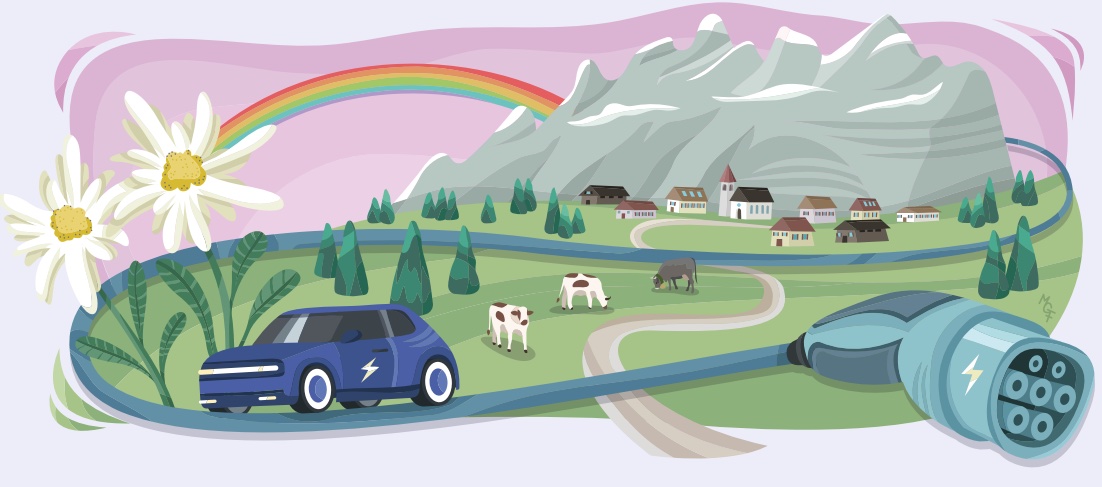Mobility is racing toward the future
From the growth of micro-mobility to investments in autonomous driving, from advances in electrification to the potential of generative artificial intelligence, mobility is racing towards the future.
Smart technology, smarter ways to move
In a decade of remarkable developments for mobility, 2024 still manages to stand out: the growth of micromobility, advances in vehicle electrification and continued investments in autonomous driving are part of the long list of those trends that are changing the way we move around the world. Major players in mobility have also decided to bet more heavily on relatively new technologies and are exploring the potential of generative artificial intelligence with conviction. However, the sector is facing numerous and complex challenges. For example, sales of electric vehicles have slowed in some geographical areas, technological problems and a lack of public appetite have led to the failure of some pilot projects in the field of autonomous driving, and concerns remain about the level of battery autonomy.

L'Italia e la mobilitàAgainst this complex backdrop, the McKinsey Center for Future Mobility, a global mobility research think tank, conducted a survey on consumer preferences in 15 countries. The survey revealed a number of interesting things about Italy.
The cost of mobility is a serious factor: among Italian consumers who say they would not consider a battery-electric car for their next purchase, 44% say it’s because of the high purchase costs.
Access to charging infrastructure is crucial for electrification: more than 60% of current EV owners in Italy believe that the availability of public charging stations will not be sufficient to meet their needs in the future.
Alternative forms of transport are considered attractive if they solve the problems most felt by consumers: electric scooters and bikes, but also robo-shuttles can help reduce traffic, and more than 30% of Italian consumers surveyed say they are ready to give up using their private car in most “use cases” within 10 years.
The goal: to make the travel experience even more enjoyable and sustainable, with a special focus on the new generations
Sustainable Tourism and MobilitySustainability is also considered very relevant by Italian consumers: in fact, 38% of those who say they are open to changing their transport habits say they want to do so to be more sustainable. In this context, mobility in tourist resorts is a real challenge. They have to cope with a lot of traffic concentrated in a short time. This means that, during peak periods, problems similar to those of a large city – congestion, pollution, lack of parking spaces and charging stations – arise. It’s difficult to recoup the investments needed to address these problems structurally throughout the year.
The Challenges of TomorrowIt is therefore essential to define “smart” mobility models, in which the use of cars to reach tourist destinations is accompanied by an effective “last mile” mobility offer, capable of meeting the travel needs of tourists and at the same time limiting the use of cars in tourist-dense areas. The combination of exchange car parks, adequately equipped with charging points, shuttles, micro-mobility options and taxis can help reduce congestion,even more so if infrastructure measures are planned to regulate traffic flows dynamically. To meet the various challenges, tourism authorities, car manufacturers and mobility stakeholders will need to step up their cooperation to make the tourist experience even more enjoyable and sustainable, with an eye on the new generations.